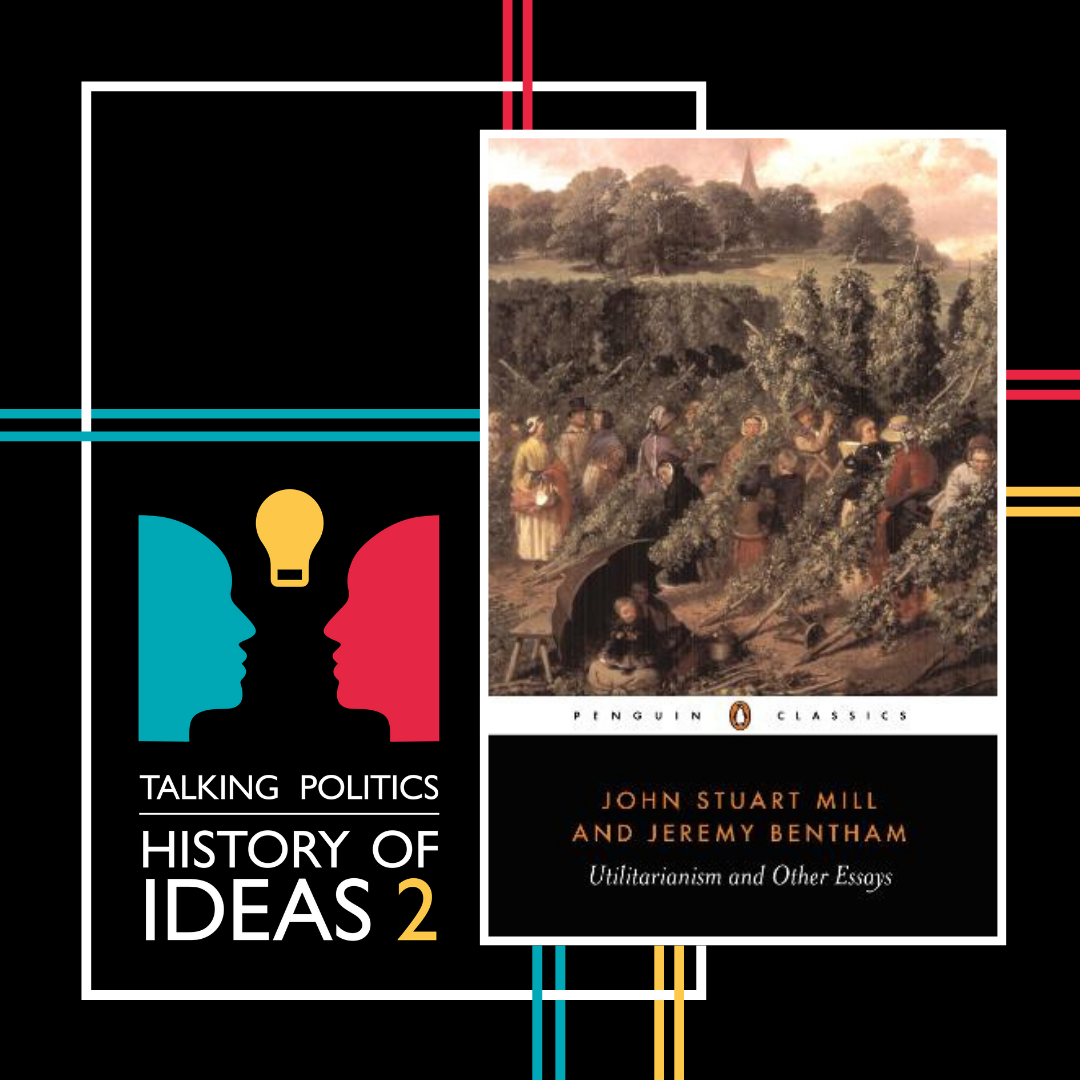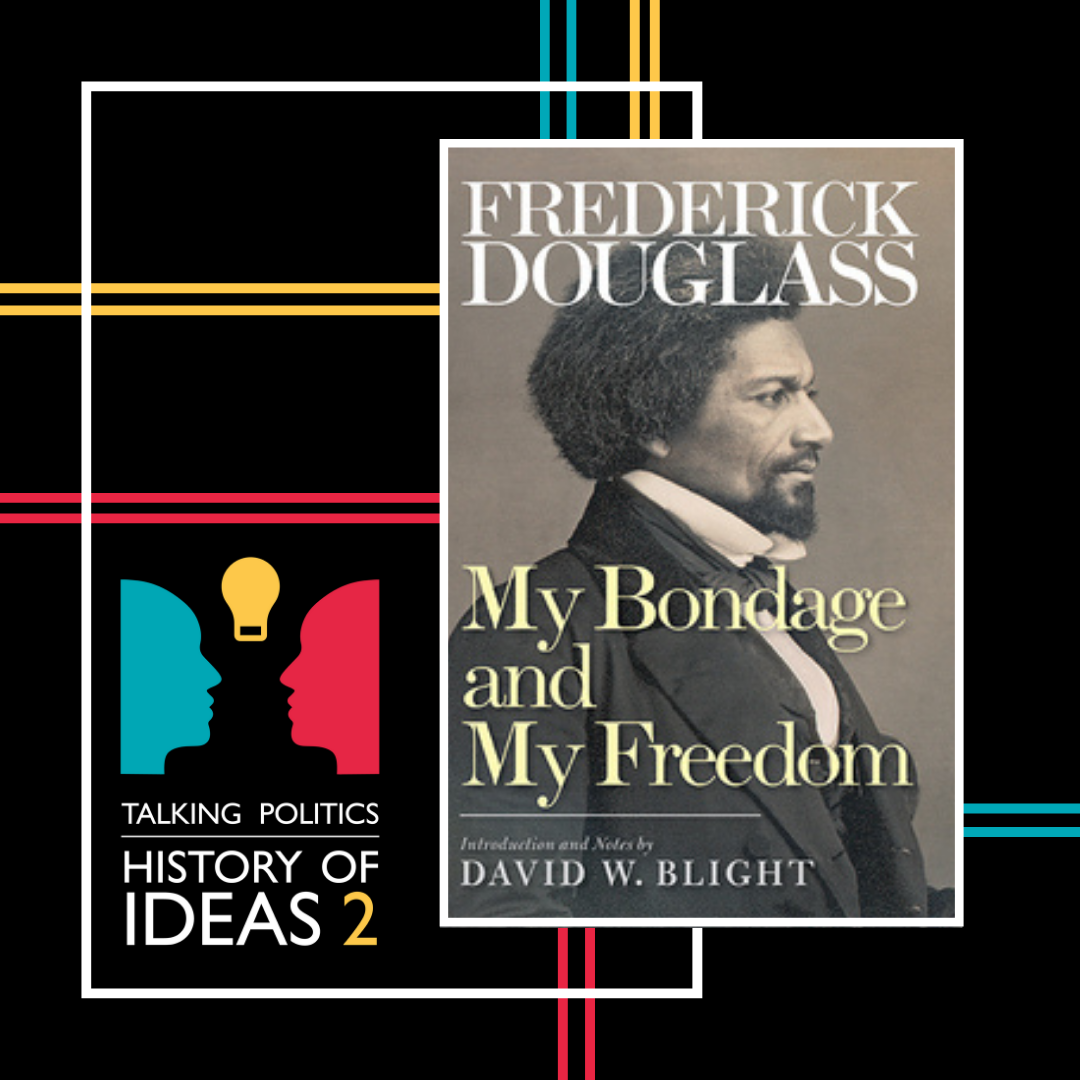Talking Politics | History Of Ideas | Series 2
History Of Ideas is a podcast sharing talks by David Runciman in which he explores some of the most important thinkers and prominent ideas lying behind modern politics – in this second series, from Rousseau to Rawls, from inequality to hypocrisy, and from pleasure to anarchy.
The new series is about the attempt to take the mask off modern politics and reveal what’s really going on. These writers are the ones who tried to show us the story behind the story, so that we could understand what our choices are.
Created by the team that brought you Talking Politics: this podcast is a history of political thinking for a world slowly coming out of lockdown – and wondering what comes next.
Rousseau on Inequality | Discourse on Inequality, 1755
Jean-Jacques Rousseau’s Discourse on Inequality (also known as the Second Discourse) tells the story of all human history to answer one simple question: how did we end up in such an unequal world? David explores the steps Rousseau traces in the fall of humankind and asks whether this is a radical alternative to the vision offered by Hobbes or just a variant on it. Is Rousseau really such a nice philosopher?
Bentham on Pleasure | An Introduction to the Principles of Morals and Legislation (1789)
Jeremy Bentham’s Introduction to the Principles of Morals and Legislation is a definitive early statement of the basis of utilitarianism: how do we achieve the greatest happiness of the greatest number? David looks at Bentham’s rationale for this approach and the many criticisms it has faced. Bentham has often been accused of reducing politics to mechanical calculation and missing what really matters. But given the time in which he was writing, wasn’t the prioritisation of pleasure the most radical idea of all?
Further reading
Douglass on Slavery | My Bondage and My Freedom (1855)
‘My Bondage and My Freedom’ by the former slave Frederick Douglass was the second of his three autobiographies and the one that contained his most radical ideas. In this episode David explores how Douglass used his life story not only to expose the horror of slavery but to champion a new approach to abolishing it. The name for this approach: politics.
Further reading
Butler On Machines | Erewhon (1872)
Samuel Butler’s Erewhon (1872) is a strange and unsettling book about a world turned upside down. Usually classified as utopian or dystopian fiction, it also contains an eerie prophecy about the coming of intelligent machines. David explores the origins of Butler’s ideas and asks what they have to teach us about the oddity of how we choose to organise our societies, both then and now.
Nietzsche on Morality | The Genealogy of Morality (1887)
Friedrich Nietzsche’s masterpiece sets out to explain where ideas of good and evil come from and why they have left human beings worse off. He traces their origins in what he calls the slave revolt in morality. David examines the ways Nietzsche’s story unsettles almost everything about modern social conventions and leaves us with the troubling question: what can possibly come next?
Rosa Luxemburg on Revolution | The Russian Revolution (1918)
Rosa Luxemburg wrote ‘The Russian Revolution’ from a jail cell in Germany. In it, she described how the Bolshevik revolution was going to change the world but also explained how and why it was already going badly wrong. David explores the origins of Luxemburg’s insights, from her experiences in Poland to her love/hate relationship with Lenin. Plus he tells the story of her terrible end.
Carl Schmitt on Friend vs Enemy | The Concept of the Political (1932)
Carl Schmitt’s The Concept of the Political has been hugely influential on the left as well as the right of political debate despite the fact that its author joined the Nazi Party shortly after its publication. David explores the origins of Schmitt’s ideas in the debates about the Weimar Republic and examines his critique of liberal democracy. He asks what Schmitt’s distinction between friend and enemy has to teach us about democratic politics today.
Schumpeter On Democracy | Capitalism, Socialism and Democracy (1942)
Joseph Schumpeter’s Capitalism, Socialism and Democracy (1942) contains a famous, and minimal, definition of democracy as the competition between political elites to sell themselves to the electorate. Schumpeter wanted to debunk more elevated ideas of the common good and the popular will. Why then has his theory proved so influential for people who want to rescue democracy as much as those who want to diminish it?
De Beauvoir on the Other | The Second Sex (1949)
Simone de Beauvoir’s book is one of the founding texts of modern feminism, and one of the most important books of the twentieth century. It covers everything from ancient myth to modern psychoanalysis to ask what the relations between men and women have in common with other kinds of oppression, from slavery to colonialism. It also offers some radical suggestions for how both women and men can be liberated from their condition.
Rawls On Justice | A Theory of Justice (1971)
John Rawls’s A Theory of Justice changed the face of modern political philosophy by reinventing the question of what constitutes fairness. From ‘the veil of ignorance’ to ‘reflective equilibrium’, it introduced new ways of thinking about the problem of justice along with new problems for thinking about politics. David discusses Rawls’s influence on what happened next.
Nozick On Utopia | Anarchy, State and Utopia (1974)
Robert Nozick’s Anarchy, State and Utopia was designed as a rebuttal to Rawls, but it was so much more than that. It offered a defence of the minimal state that appealed to the writers of The Sopranos, and a vision of utopia that appealed to the founders of Silicon Valley. David explores what Nozick wanted to achieve and identifies the surprising radicalism behind his political minimalism.
Shklar On Hypocrisy | Ordinary Vices (1984)
Judith Shklar’s Ordinary Vices (1984) made the case that the worst of all the vices is cruelty. But that meant we needed to be more tolerant of some other common human failings, including snobbery, betrayal and hypocrisy. In this episode, David explores what she had to say about some of the other authors in this series – including Bentham and Nietzsche – and asks what price we should be willing to pay for putting cruelty first among the vices.
Q&A
A special episode in which David answers some of the audience's questions about the second series of History of Ideas – from how he chooses which writers and works to talk about, to whether Boris Johnson is the ultimate Benthamite and whether the idea of a pleasure machine isn't - in fact - totally rational.
We really enjoyed making these podcasts for people to enjoy during lockdown. To support History of Ideas and Talking Politics, you can become a member by clicking here: for £3 a month, you can enjoy Talking Politics without adverts in the middle of the discussions. Thank you for listening!













